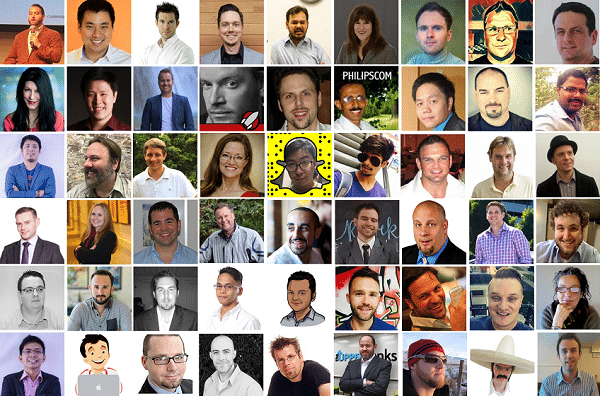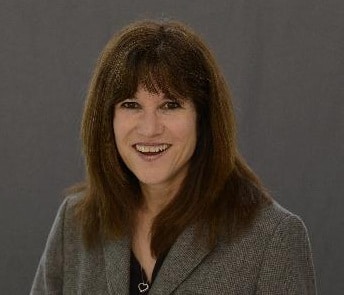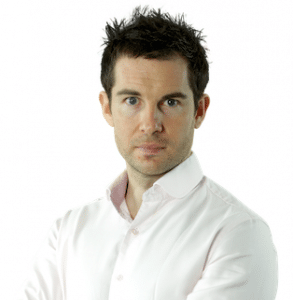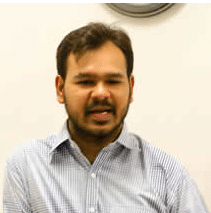2016 has been rife with activity in the SEO sphere. Lots of new SEO trends took off this year.
Webmasters had to upgrade their strategies to include Google’s Accelerated Mobile Pages or AMP, featured snippets, and, perhaps, the biggest shakedown of them all: Penguin 4.0 and its real-time updates.
But now, 2017 has begun, and, as would be customary, it is time to move on from the past, and to look forward to what this next year will bring to the volatile world of SEO.
Again, we reached into our deep well of influencer contacts—using our NinjaOutreach tool, of course, and we received a stellar response: 55 in total.
Today, before January ends, let us share our first expert roundup for this year, featuring more than 50 SEO experts and their take on SEO trends for 2017.
Quick Navigation
- Moosa Hemani – Founder of Inbound Marketing agency SEtalks.com
- Gerry White – SEO specialist and online marketer, UsableContent
- Stoney deGeyter – President, Pole Position Marketing
- Marcus Miller – SEO and Digital Marketing Strategist at UK Agency Bowler Hat
- Patrick Langridge – Head of SEO, Screaming Frog
- Craig Campbell – SEO Consultant
- Joseph Gojo Cruz – Author and founder of Ranking Elite
- Rob Watts – Director at Yack Yack SEO
- Nick Eubanks – Digital strategist for TrafficSafetyStore.com and Founder of I’m From The Future
- Bill Sebald – Owner of digital agency Greenlane
- Philip Verghese – Multilingual content marketer
- Tadeusz Szewczyk – Online marketing consultant, author of the SEO 2.0 blog and ebook
- Gabriella Sannino – International SEO consultant and writer
- Jasmine Sandler – CEO of Agent-cy Online Marketing
- John Rampton – Internet marketing speaker, Co-Founder, and CEO of Due
- Janice Wald – Internet marketing coach and author
- Scott Gombar – Digital Marketer and Host of The SEO Tear Down
- Suprabhat Mondal – SEO & digital marketer; CEO and Founder of Money Gossips
- Jason Quey – Business consultant
- Devesh Sharma – Founder of a popular WordPress resource site, wpkube.com
- Kathryn Aragon – Content strategist, consultant, and author
- Ryan Amen – Marketing Director at Nifty Marketing
- Larry Kim – Founder of WordStream
- Jeff Ferguson – Founder and CEO of Fang Digital Marketing
- Peter Attia – Director of Content and Search at Modernize
- Craig Kilgore – Digital marketing and inbound sales consultant based in New York
- Glen Dimaandal – CEO of GDI Online Marketing
- Arnout Hellemans – SEO specialist
- Tommy Landry – Founder and President of Return On Now
- Dennis Goedegebuure – Vice President for Growth & SEO at Fanatics Inc.
- Debbie Miller – Digital Communications Manager; owner of Social Hospitality
- Chris Countey – SEO Technical Manager at Publicis Health
- Jordan Kasteler – Marketing consultant and entrepreneur
- Steven Macdonald – SuperOffice online marketer
- Fervil Von Tripoli – SEO specialist and digital marketing strategist
- Seb Brantigan – Online marketer and trainer
- James Reynolds – Founder of Veravo and SEO Sherpa
- Michael Cottam – SEO consultant and Moz Associate
- Eric Hebert – Founder of Evolvor Media
- Shounak Gupte – Web developer & SEO specialist
- Ben Wynkoop – SEO specialist
- Simon Penson – Founder and Managing Director of Zazzle Media
- Venchito Tampon – CEO and Co-Founder of SharpRocket
- Sean Si – CEO and Founder of SEO Hacker and Qeryz
- Ziv Eliraz – CEO, Infolinks
- James Norquay – Director at Prosperity Media
- David Farkas – Founder and CEO, The Upper Ranks
- Nate Shivar – Marketing educator & SEO consultant
- Harris Schachter – SEO & Content Marketing Manager of Capital One; Owner of OptimizePrime, LLC
- Dominic Wells – Owner, HumanProofDesigns.com
- John Doherty – Founder of GetCredo.com
- Dennis Seymour – Digital marketer and entrepreneur
- Ken Lyons – Co-Founder & Managing Partner of Digital Examiner and Measured SEM, LLC
- Tom Demers – Co-Founder, Managing Partner at Measured SEM LLC
- Matt Press – Copywriter and manager of Splash Copywriters
- Swadhin Agrawal – Entrepreneur & blogger
- Marc Swann – Search Director at Glass Digital
- Zac Johnson – Entrepreneur & blogger
- Nirav Dave – CTO & Co-Founder, Capsicum Mediaworks
Founder of Inbound Marketing agency SEtalks.com
Survival of the Fittest SEOs
According to Hemani, a lot of businesses’ and brands’ futures rely largely on what strategy they are currently implementing; specifically, if these strategies are in line with where SEO is heading in 2017.
There is the oft-expressed warning—which we have also advised, to remove or disavow links from PBNs or private blog networks, bad directories, forums, and blog comments. If you still have a list of this to clean up yet, please make it your New Year’s SEO resolutions.
A Strategy Built on Head Terms Will Start to Cost You More
If your SEO strategy is to focus on head terms so you can keep moving up the ranks bit by painstaking bit to get your coveted chunk of leads, then, in theory, you’re right, says Hemani.
But practically speaking, relying on this as a singular strategy is “a recipe for drowning your business and money,” he warns.
Avoid the Gray and Black Hat Areas Altogether
We believe that dabbling in the dark arts—and let’s say the “gray” arts as well, for inclusion’s sake—will eventually do more harm than good when it comes to SEO. Hemani says so too.
Gerry White
SEO specialist and online marketer, UsableContent
The State of Search in 2017: Intent Based Searching
Gerry, who currently works with Just Eat on international SEO, adds: “Google increasingly has been looking at why they [users] have entered that query and what they want from it, rather than the keywords. With the gentle introduction of AI and increased personalization, this will alter how users search over time.”
He also believes that, as voice and mobile become far more effective, search in 2017 will start to shift towards these technologies, particularly in the wake of the last few brands and blogs already making this shift to being truly mobile friendly.
“SEO will increasingly be about relevance and user intent and less about keywords; however, anyone who neglects keyword research and doesn’t use the audiences’ natural language will be at a disadvantage.”

Stoney deGeyter
President, Pole Position Marketing
The State of Search in 2017: Personalized Search Results
“As more personal data is collected and correlated together between devices, Google and other search engines will use that data to deliver results that are specific to the searcher. This will make branding and brand searches more important than ever in order for companies to become a part of the ‘confirmation bias’ that the search results will inevitably produce,” says deGeyter, who authored “The Best Damn Web Marketing Checklist, Period!”

Marcus Miller
SEO and Digital Marketing Strategist at UK AgencyBowler Hat
Search Is Maturing and Will Become More Competitive
“Paid search results are dominating the page for commercial search queries. We have already seen the move from three to four ads and those ads have recently increased in size. Organic results are diminishing and we often see below the ten blue links of old. We are seeing the testing and initial roll out of ad products in the local space as well, meaning that businesses of all shapes and sizes need to look at paid options to guarantee visibility for commercial search terms,” Miller observes.
Would this mean organic search would become useless in 2017?
Miller doesn’t think so.
“Organic is still critically important though and it may just be that businesses have to look at content marketing and acquiring customers further up the marketing funnel as paid becomes the dominant force for the bottom of the funnel search queries,” he says.
As for technical SEO, Miller believes it will grow to become more important, saying: “As we move to a mobile- first index, ensuring your site is fast, user-friendly on all devices, and free of niggling technical issues, will be critical. Companies should consider looking at regular SEO audits to ensure best practices are maintained.”
Miller concludes: “We are moving out of the wild west times of search and SEO. Big brands are ruling the roost. SEO is not enough and businesses need to ensure they have their marketing dialed in to continue to compete in search in 2017 and beyond.”

Patrick Langridge
Head of SEO, Screaming Frog
Link Building “Will Become More of A Challenge” This 2017
As for the common link building practices of the past, Langridge says: “There are still lots of quick and dirty ways to build links, but Google is certainly becoming smarter at understanding which links to value and which to ignore. Brands and agencies will need to work harder to build the kinds of links that will generate organic growth, rather than spend lots of hours on low quality and low results linking work.”
He adds: “I believe it will be increasingly important to consider relevancy in linking work—this has always been important, but I think it’s an area where Google will place more weight moving forward.
Langridge concludes his opinion with this advice: “Brands need to engage with websites and communities where their audience and potential customers actually spend their time, even if these sites don’t hold especially high domain trust or authority.”
SEO Will Change Continuously, As Before And As It Will After 2017
“There are always going to be changes year on year and 2017 will be no different,” begins Craig Campbell.
A Glasgow-based SEO Consultant with over 15 years experience, Campbell adds:
 Craig Campbell, SEO Consultant
Craig Campbell, SEO Consultant
“The key things over the past couple of years that help a website rank is the content and links and that, in my opinion, isn’t likely to change too much. There are updates rolled out but these do target spammy links and spammy content and these are required to weed out the rubbish.”
As for other algorithm updates, Campbell calls these “minor changes” that you need to keep on top of to ensure you stay ahead of the competition. He doesn’t believe there will be a case where an update will cause you to come up with a completely new strategy.
“SEO for me has been about decent content and decent links and that hasn’t changed much over the years. Of course, videos and infographics keeping people on the site all go a long way to helping the SEO, [but] the main things are doing the basics right first and foremost,” he says.
“People are often taken off track by all the scaremongering or things they read online and in my opinion much of that is complete nonsense,” Campbell , adding, “If you want to rank well for a specific keyword, have some good content, some good on page SEO and some good backlinks and you will get some decent rankings.”
What about social signals, you say, along with all the other new bells and whistles of SEO?
“Others will argue social signals and many other things assist with SEO, In my experience and testing, you don’t really need all of the other stuff to rank well. But having social signals and shares on social media will increase traffic so they do go hand in hand,” Campbell says.
He concludes: “But I’d always advise stick to the basics first and foremost and you should be fine for 2017.”
The State of SEO Is A Continuously Shifting Situation
Joseph Gojo Cruz, author of SEO and online marketing blog, Ranking Elite, says the state of SEO is a continuously shifting situation, too.

Joseph Gojo Cruz
Author and founder of Ranking Elite
“SEO is constantly changing and every now and then we keep seeing updates from search engines. I think everyone is pretty much aware of the situation.”
Cruz has been featured on high authority sites such as Flippa.com, SearchEngineJournal, and Ahrefs, to name a few.
SEO: An Ever Moving Target
“SEO is an ever moving target, of course,” agrees Rob Watts, who runs Kent based online marketing company Yack Yack SEO.

Rob Watts
Director at Yack Yack SEO
“I’d expect some SEO opportunities to shrink as the above the fold opportunities in Google and Bing contract for the traditional blue type links,” continues Watts, who has been helping companies with their SEO and marketing for 20 years.
“Companies will have to adapt (yet again) to the desires of Google and ramp up their content to make the most of newer opportunities presented. There’ll be a greater emphasis on HTTPS, and AMP will become increasingly important.”
SEO Has Already Changed—And It is Not Slowing Down
“With Penguin now running as part of the core algorithm, mobile exceeding desktop earnings for Google for the first time, and more and more SERP UI tests rolling out each day… SEO has already changed, and it’s not slowing down,” Nick Eubanks comments.

Nick Eubanks
Digital strategist for TrafficSafetyStore.com and Founder of I’m From The Future
Nick is a digital strategist who runs TrafficSafetyStore.com and is the Founder of I’m From The Future, a Philly-based digital agency.
“Now more than ever, brands and bloggers need to be hyper aware of their crawl budget, proper use of content and their sites and pages bounce rates. Dwell time in addition to other qualitative signaling is having huge impacts on rankings and SERP stabilization, and I project this is only going to continue,” Eubanks advises.
“With Penguin now running as part of the core algorithm, mobile exceeding desktop earnings for Google for the first time, and more and more SERP UI tests rolling out each day… SEO has already changed, and it’s not slowing down.”
SEO Movement 2017: Less Tactical; More Strategic
Philadelphia-based blogger and professor Bill Sebald, who owns the digital agency Greenlane, says he sees more tweaks to AI and improvements to existing models and products.

Bill Sebald
Owner of digital agency Greenlane
“The movement away from tactics in the last few years will continue to be a reality, as SEOs start focusing on more strategic campaigns,” says Sebald.
“Making your website stand out in a more buzzy way, and improving brand exposure and mindshare, will help Google’s improving comprehension. That’s what I’m putting my chips on for 2017, anyway,” he quips.
Upcoming SEO Changes Will Have ‘A Bit’ Of A Bad Effect
Philip Verghese, otherwise known as Ariel, is a multilingual content marketer who manages different sites in English as well as in Malayalam.
For Verghese, the fact that there will be lots of changes in the state of SEO for 2017 is something he considers predictable.

Philip Verghese
“Since every now and then changes are taking place in SEO strategies itself, the strategy of today may not work after some time and it becomes an outdated one. Google, too, will look down on it as an outdated [strategy] and we need to look out for a new one. Coping with it is a bit difficult task,” he says, citing Google’s “Mobilegeddon” movement, which forced many web masters to develop Accelerated Mobile Pages or AMP—that is, mobile friendly websites.
“Ultimately, opening/loading speed is the key here. In this fast-moving world, everyone wants to move in a fast-paced manner, and in such situation, AMP works wonders. Google utilized this opportunity well since AMP are specifically designed to load fast and it provides a better, user-friendly option,” he adds.
Verghese cautions, however, that these upcoming changes will have somewhat of a bad effect on already existing strategies imposed by brands and bloggers.
Disappearance of Organic Reach; Introduction of Site-less Web Search; Post-Truth State of Publishing
Tadeusz Szewczyk, also known as Tad Chef, is an online marketing consultant who authored the SEO 2.0 ebook and manages a blog of the same name.
When asked for his opinion about the state of SEO for 2017, Szewczyk, had much to say.

Tadeusz Szewczyk
Blogger, website optimization guide, and author of the SEO 2.0 ebook
“Yes, there are plenty of changes when it comes to search that will matter in 2017.
Some are just gradual processes that have been taking place for years but which reach critical mass now. Other developments are happening more or less overnight even though they too have been in the making for a while.
There are three major changes I’d like to focus on:
- The disappearance of organic reach.
- The introduction of the site-less web search.
- The ‘post-truth’ state of publishing.
When it comes to #1, we need to come clean and admit that simply optimizing for organic Google results or Facebook reach is not sufficient anymore. Organic search is not only invisible on mobile phones.
Even large monitors and desktop computers struggle to display any organic results on Google. Kids and teens can’t even distinguish between ads and results anymore.
#2. With hardware like Google Home or Amazon Echo, real life assistants overtake the last technology free space. People ask assistants what movies to watch, which food to order or which candidate to elect.
These ‘speakers’ do not even have a display. There is no way to see a website or even the need to determine the source of the advice. Web sites get cut out as the proverbial middleman.
2016 has meant a paradigm shift in publishing, pushed by reactionary politics.
#3 is the so-called ‘post-truth’ state of the public discourse.
For publishing, it means not that the truth sells but that the most attractive lie prevails.
In a way, publishing merges with advertising and propaganda. Fake news and true lies spread faster and wider than hard facts. People don’t seek the truth but only want their biased opinion affirmed.
– How can you optimize websites or content when there is almost no room left for it?
– How can websites rank when there is not even a search engine result visible anymore?
– How can you compete against fake news, blatant lies and myths spreading like wildfire?
There is only one strategy to deal with all those roadblocks. It’s about holistic popularization.
It’s not limited to search, engines, or other gatekeepers like Facebook. It’s about popularizing your message independently of narrow channels, proprietary websites, or simple facts.
You need to make your truth more attractive than the lies, spread itself like memes, and make people search for it—not just you and your site.”
The State of Search in 2017: Mobile-Focused SEO
International SEO consultant and writer Gabriella Sannino gave her own take, highlighting a more mobile-focused SEO for 2017.

Gabriella Sannino
International SEO consultant and writer
“There’s no question in my mind that mobile search will increasingly become a more competitive factor than it already is. Specifically in three main areas:
Mobile Experience
It’s pretty obvious, I think, that putting mobile experience first should become a top priority for brands and bloggers alike. Google’s been pushing mobile first for a few years now, at least, but there are still many brands – including big name brands – who have abysmal mobile websites. Perhaps they think they can carry on with the name alone, but I think we’ll start seeing even the big name brands suffering from a less than stellar mobile site.
So first and foremost, brands and bloggers should be moving mobile up into a more prominent position in their marketing strategies. Instead of mobile being a low priority, it should be in the top three – if not the top.
Voice Search
Shifting towards a mobile universe also points directly at voice search. We have Google Now, Siri, Cortana, and Alexa, to ask a myriad of questions. We have voice recognition programs such as Microsoft’s native voice program and Dragon Naturally Speaking. We talk to our phones, tablets, computers, televisions, and cars – and we expect a response. The way we interact with our electronic devices is evolving into the realms of science fiction.
With voice search, brands and bloggers will need to recognize that people searching by voice won’t be as patient and willing to research as someone searching through type. While the query may be the same, what’s considered acceptable results could vary greatly.
Monitoring Content Performance, Ranking, and Local
Finally, but again in tune with the mobile direction, publishers will need to consider what type of content they’ve been publishing compared to the devices and methods of search. However, these aren’t really new ideas—these are the same things they should have been doing all along.
For example:
* Compare terms and ranking with content performance.
* Make sure link outreach programs are to relevant sites.
* Makes sure your local information in the search engines is correct.
* Keep your NAP updated and uniform.
* Make sure citations are correct
At the end of the day, search is still evolving, and its direction is mobile, voice, and, I dare I say, Artificial Intelligence. Brands and bloggers have to be ready to embrace this future, or they’ll be left in the past.”
SEO Will Be Driven by Mobile User Behavior and Social Signaling
According to CEO of Agent-cy Online Marketing Jasmine Sandler: “SEO results will be driven more and more from mobile user behavior, particularly mobile app search and of course, online PR, with real credible backlinks from publishers and bloggers.”

Jasmine Sandler
CEO of Agent-cy Online Marketing
Sandler is a multi-awarded digital marketer and trainer with over 15 years of experience in B2B digital marketing consulting.
“Social Signaling will continue to become more important to Google as the Twitter-Google indexing matures,” says Sandler, who also authored books on online branding and social selling, titled ‘Branding & Sales: The LinkedIn Way’, and ‘How to Brand Yourself Online like a CEO’.
Increased Use of Voice Assistants Will Affect Keyword Optimization
For John Rampton, the Co-Founder and CEO of Due, an online invoice and payments company, sharing his opinion about online marketing and the state of SEO is part of the job—especially since he travels all over the world to speak in many such conferences.

Internet marketing speaker, Co-Founder, and CEO of invoice and payments company Due
“The increased use of voice assistants on smartphones to assist with searches, which is changing what keywords are used because users are employing more natural language than when they type in keyword for their searches,” says Rampton.
He adds: “That means brands and bloggers will have to re-examine what type of keywords are used and change their strategies to align with the use of voice command searches.”
Keywords No Longer Enough; Longer Tail, Keyword Phrases Are The Way To Go
Janice Wald, internet marketing coach and author of “An Insider’s Guide to Building A Successful Blog”, says she does see changes in line for SEO in 2017.

Janice Wald
Internet marketing coach and author
“Long tail keywords are more important than ever. It makes sense. If searches contain phrases, our keywords should contain phrases, so our articles come up in the searches.
To be considered “long tail,” the keyword phrase should be at least four words long. I recommend the site Soovle.com as a place to find long-tail keywords that go with your content.
How does this affect current SEO strategies?
Clearly, keywords are not enough anymore to bring organic traffic to our websites. They need to be keyword phrases, at least four words long.”
SEOs Will Need to Focus More On Content Engagement
“In 2017 we will see the rise of machine learning,” says Scott Gombar, a digital marketer who hosts “The SEO Tear Down”, a weekly live video podcast about SEO.

Digital Marketer and Host of The SEO Tear Down
“Google’s RankBrain will continue to become a bigger part of the Google Search Algorithm. Website owners and SEOs will need to focus more attention on content engagement because Google will place more value on:
- Comments on content
- Sharing of content
- Time spent on a post/page
- Natural links back to content
This means SEO/Content Developers/Website Owners will need to develop content that is of high value and unique in nature.”
Days of Easy Google Rankings Are Over As Google’s Quality Standards Increase
Suprabhat Mondal is a digital marketer who has worked on SEO for companies such as Wondershare and CouponzGuru.
According to Mondal, Google upped its standards, and will continue to do so this 2017.

Suprabhat Mondal
SEO & digital marketer; CEO and Founder of Money Gossips
“If compared with 2008, Google got wise. They shut bad, poor quality stuff down; reciprocal linking stopped having any value. Sites were massively punished and remain punished to this day, most of them. Adwords accounts shut down for good. It was carnage! Those days of easy google rankings are gone, and they are gone for good.
Search engines have moved on. If you pay someone to create a huge amount of backlinks with just one click like GSA, SENuke, MoneyRobot etc, remember Google is watching you, surely it will punish you.
Even building one single link, by definition, is actually going against Google’s code of practice.
Today, the only strategy that should be imposed by bloggers and brands should be focusing much on Quality Content rather than link building.
SEO that works today, and will work permanently in the future is to not do SEO anymore.
The more quality and in-depth content you will write, popular sites like Mashable, TechCrunch, Entrepreneur (Popular site in your niche will link you naturally).
Instead, naturally promote your sites in the ways that Google will love & respect. In reward, Google will naturally rank them.”
There Will Be A Greater Push Towards User Activity On A Site
Jason Quey is a business consultant whose job is to connect entrepreneurs with influencers.
According to Quey, SEO in 2017 will continue to put more bearing on user activity on a site.

Business consultant
“I think there will be a greater push towards user activity on a site. Just as social sites have used it with their algorithms, the more someone is engaged with a website or piece of content, the more Google wants to deliver that to the person.”
Links Still Important, But Producing Valuable Content More Important
Dev is the founder of a popular WordPress resource site, wpkube.com. For Dev, link building won’t be the sole driver of SEO for 2017.

“I think in 2017, bloggers need to focus on things like HTTPS, site speed, user experience, CTR, and publishing epic content, instead of just building links.
Links will still be a part of SEO, but more focus should be on creating content provides value.”
What We’ve Been Calling ‘Quality Content’ Isn’t Good Enough Anymore

Content strategist, consultant, and author
“Three things traditionally impact SEO: keyword research, quality content, and link building.
Going into 2017, I see brands realizing that the only way to win is to create higher value, better quality content.
What we’ve been calling quality content isn’t good enough anymore.
We have the tools to do keyword research and outreach (ahem, NinjaOutreach, anyone?). But there are no shortcuts for creating content. As a result, brands and bloggers are having to step up their game.
In the coming year, I see a much greater focus on quality over quantity as a result.”
Emphasis On Higher Quality Content And User Experience

Marketing Director at Nifty Marketing
“I think we will continue to see an increased emphasis on quality user experience & more unnamed ‘core’ updates. Having content on topics isn’t going to be enough to compete & producing content that is 2x-10x better than competing pages on the topic will continue to increase as a priority for brands.
There’s still a lot of poor quality content performing well in search results, but if you want to get ahead of the curve, focus on creating pages & content that blows the competition away as far as how useful it is to your audience.
Google wants to serve the best result for the searched term/phrase & eventually, it will only be a matter of personal preference (which also comes into the equation/result) that will be up for debate on what the best (Google served) result is.”
Google Organic Search Ranking Algorithms Favor User Engagement Signals Over CTR

Larry Kim
Founder of WordStream
“Google’s organic search ranking algorithms are increasingly favoring user engagement signals like click through rates and dwell time.
While links and keywords still matter, SEOs should shift some of their attention to identifying and fixing low CTR and high bounce-rate pages that are (a) likely not realizing their full potential and (b) most likely a drag on *other* pages on your site as Google evaluates user engagement metrics not just on the basis of individual keywords and pages, but of your overall site.
Sites that are most vulnerable to this ongoing shift in ranking factors will be sites with high ‘domain authority’ that were able to rank on large portfolios of search queries by cranking out volumes of lower quality content.”
Kim also developed free marketings tools for Facebook, AdWords, and SEO and he hosts columns about marketing and entrepreneurship on his blog, Inc. Magazine, and Medium.
Algorithms Keep Changing, But SEO Has Essentially Stayed The Same

Jeff Ferguson
Founder and CEO of Fang Digital Marketing
“I think the algorithms that influence most SEOs are constantly changing; however, in reality, SEO has never really changed. It has always been about providing quality content to your users on a properly built site that naturally attracts links from other sites (because of quality content).
How Google lays out its results matters, but chasing that instead of focusing on making your own product great is a losing game.”
Engagement And CTR Go Hand In Hand

Peter Attia, Modernize Director of Content and Search
“One thing that continues to become more important is engagement and click through rate metrics. We’ve seen a lot of correlation between these metrics and organic rankings and they seem to become stronger over time. I expect this trend to continue and possibly grow into other engagement metrics.”
SEO Is In A Constant State Of Flux

Digital marketing and inbound sales consultant based in New York
“SEO is in a constant state of flux, which is no surprise to most.
Over the last decade, I’ve noticed SEO to be one of the most overthought components of digital marketing. People tend to get tunnel vision when it comes to SEO and they fail to see and capitalize on the obvious.
For example, if you’re not currently focusing on the level of impact (both positive and negative) user experience signals have on SEO, yet you obsess over writing the perfect meta descriptions and header tags (which are important, don’t get me wrong), you’re guilty of this tunnel vision I speak of.
Leverage free / low-cost tools like Google Analytics and Hotjar to gain a complete understanding of where, and more importantly why, visitors are or aren’t doing what you hoped they’d do when you published that new page on your site, wrote that new blog post, or created that new landing page.
Leave your assumptions at the door and give your visitors exactly what they want.
Aimlessly creating for the sake of creating has gone on for far too long and it absolutely influences your SEO outcomes.
The web is overflowing with content.
Many SEO / digital marketing practitioners look at content creation as a silver bullet. The more content we create, the better off we’ll be.
To succeed in 2017, you must get out of this mindset. More is not always better. Spend more time understanding your visitors and what’ll keep them engaged.
Learn more about what they like, what they share, what they recommend, what they forward, and what’ll make them want to come back to your site.
Train yourself to stay in this mindset versus the “create, create, create” mindset, and you’ll begin to see that your visitors are now spending more time on your site, sharing more of your content, subscribing to more of your emails, signing up for more of your webinars, etc. Isn’t this what we all want? This is what Google and other search engines want, too.
Make it a point to fully understand your visitors, create only what they need (not what you think they need), and you’ll be left with a fully engaged and tuned in audience, making 2017 your best SEO year.”
Mobile SEO Is The New Frontier

CEO of GDI Online Marketing
“I would bank on a renewed focus on technical SEO with respect to mobile devices to carry our campaigns in 2017.” This comes from Glen Dimaandal, the CEO of GDI Online Marketing, a Philippine-based SEO agency.
Glen has already spoken in major SEO conferences such as SMX West and Confluence, and he shares digital marketing insights in his blog GlenDemands.com.
“Mobile SEO will be more vital to B2C sites than ever. There seems to be no let-up in the growth of mobile internet usage and Google will certainly want to capitalize on that.
The shift in strategy will likely lean away from looking at the customer buying cycle through the lens of just desktop devices.
A more multi-touch approach involving both desktop and mobile devices will be the way to go.”
SEO Will Become An Even Bigger Battlefield

Arnout Hellemans
“Yes, more voice-activated searches and answer boxes (knowledge graph). You either build a brand or have quality content to appear in these answers […] This will become an even bigger battlefield.”
Arnout Hellemans is an SEO specialist who optimizes pages both for NL and international SEO.
Google Will Be Laser Focused On Mobile Search
Tommy Landry is the Founder and President of Return On Now and provides the vision behind the company’s SEO and SEM methodologies.

Tommy Landry
Founder and President of Return On Now
“Over the past couple of years, we’ve watched Google put a laser focus on mobile search. That trend will only accelerate in 2017.
You will see this occur in several areas:
- Mobile first search algorithms: Google has already gone on record as saying mobile will come ahead of desktop in the new year. This makes a great deal of sense, as we are seeing well over half of searches occur on phones and tables.
- AMP: Accelerated Mobile Pages was a bit slow to show adoption in the very early days, but more and more webmasters and SEOs are getting on board to close out 2016. Google Search Console even has a view where you can verify that your AMP pages are showing up properly. AMP will provide important benefits for page load time and mobile UX, and I anticipate it will hit critical mass before the end of next year.
- Voice Search / Machine Learning Enhancements: Also piling on the mobile topic, voice search is poised to become a crucial piece of the search puzzle. Google and other search engines will continue to enhance the sophistication of their algorithms using machine learning, and this will in turn help improve the usefulness of voice search in tandem.
So bottom line: If you haven’t already pivoted to focus on mobile, you’re already too late. Work hard to catch up, because this will be more important in the coming months.”
Massive Mobile SEO Movement: Don’t Get Left Behind!
Dennis Goedegebuure is the Vice President for Growth & SEO at Fanatics Inc. In this role, he oversees the creation of social content, content amplification and all SEO efforts for the Fanatics network of partner sites.content amplification and all SEO efforts for the Fanatics network of partner sites.

Vice President for Growth & SEO at Fanatics Inc.
“If you haven’t thought of a mobile strategy for 2017, you just have 3 weeks to sit down and get yourself one.
With the increasing growth of time spent on the mobile phones, Google introducing a mobile first approach to search, you can expect a whole lot of changes coming down.
This would include; how are you handling mobile pages or are you implementing AMP? What about a progressive web-app strategy vs your own app? And have you thought about the changing behaviors of the people you are targeting, they might adopt voice search faster than you thought.”
Prior to Fanatics, Dennis has spent 10+ years in various SEO positions, recently as Head of Global SEO at Airbnb.
Before Airbnb, Dennis was with eBay for almost 10 years, last in the position of SEO Director for all eBay global marketplaces. He started his career with eBay in The Netherlands, working on the local eBay site and Marktplaats.nl, the local classified site from eBay, and the country’s e-commerce leader.
Web Page Optimization And Quality Content
Debbie Miller is the Digital Communications Manager for a digital marketing agency in Southern California. She also runs her own brand and side business, Social Hospitality, where she blogs about digital trends and provides writing, editing, and social media services.

Debbie Miller
Digital Communications Manager; owner of Social Hospitality
“If you haven’t thought of a mobile strategy for 2017, you just have 3 weeks to sit down and get yourself one.
With the increasing growth of time spent on the mobile phones, Google introducing a mobile first approach to search, you can expect a whole lot of changes coming down.
This would include; how are you handling mobile pages or are you implementing AMP? What about a progressive web-app strategy vs your own app? And have you thought about the changing behaviors of the people you are targeting, they might adopt voice search faster than you thought.”
Prior to Fanatics, Dennis has spent 10+ years in various SEO positions, recently as Head of Global SEO at Airbnb.
Before Airbnb, Dennis was with eBay for almost 10 years, last in the position of SEO Director for all eBay global marketplaces. He started his career with eBay in The Netherlands, working on the local eBay site and Marktplaats.nl, the local classified site from eBay, and the country’s e-commerce leader.
Google Switch To Mobile-First Search Will Trigger Technical SEO Resurgence

SEO Technical Manager at Publicis Health
“Google switching from a desktop-first to a mobile-first index is likely to have a major impact on search. It will be interesting to see how Google will handle PageRank with the new index since most sites link to each other via responsive or desktop site versions, not usually mobile.
For brands and bloggers that still use a mobile version (m dot), they should begin evaluating the setup of their websites now.
Mobile alternation and proper canonicalization will be key, as well as ensuring that they think mobile-first in terms of content development. Many m dot sites are developed as ‘lightweight’ versions of the desktop site, usually leading to less content and a general reduction in experience for the user.
Another consideration is how we currently track rankings. Even tools like SEMRush take a desktop-first approach to keeping track of positions. I’ve seen some incorrect data in tools tracking ‘mobile visibility’ so hopefully, that gets worked out.
I think this change will result in a resurgence of technical SEO, especially as mobile search optimization paves the way for the optimization of the internet of things.”
SEO 2017: Putting Mobile First
Jordan Kasteler is a freelance marketing consultant and entrepreneur who co-founded SteelCast, a tech incubator housing several other self-started companies, and served as Managing Partner of BlueGlass Interactive, an Internet marketing agency.

Marketing consultant and entrepreneur
“The major change in 2017 is putting mobile first. Google will base a site’s ranking on how it appears on mobile instead of how they traditionally do it now by focusing on desktop.
Mobile site content should reflect what the desktop site reflects as well. This also means that mobile sites with interstitials that are obtrusive will be penalized as they don’t create a good user experience.”
Jordan also worked as in-house SEO at Overstock.com and as marketing strategist for PETA. He is also an international conference speaker and author of “A to Z: Social Media Marketing”.
Shift From Long Form Content To Video Content

Steven Macdonald, SuperOffice online marketer
Based in Tallinn, Estonia
“I think the biggest change in SEO for 2017 will be a shift in moving all written content to video content.
Today, SEOs are under the impression that longer form content will rank highly and so many try to game this by writing 10,000+ word pieces of content.
By 2019, 80% of all content consumed online will be through video. SEOs cannot game video content as it requires a completely new skill set.
The top SEOs will be focusing more on video in 2017 and less on the written word.”
A Lot of Changes; Remain Cautious With SEO Strategy

SEO specialist and digital marketing strategist
Based in the Philippines
“Google is getting clear on its intention to go mobile. We’ve seen big data showing how rapid mobile searchers grow in numbers. Google started rolling out a lot of algorithm changes which pushed SEOs to conform with the mobile standard and making websites more useful than ever.
I’ve actually mentioned these algorithm updates in 2016. These are some of the highlights that SEO practitioners should take into consideration in the upcoming months and years.
The Google search is very volatile now. With all the algorithm updates we’ve seen in the past, SEOs should be wary of the SEO strategies they are building up for business websites.
Back then, SEOs solely focus their energy on keywords and backlinks. In 2017 onwards, every SEO practitioners will need to evolve into T-shaped web marketers.”
Social Media Site Content Will Show Up More In Search Engine Results
Seb Brantigan, also known as the Britpreneur, is an online marketer. He also provides training on lead generation strategies.

Online marketer and trainer
“I have a few things I want to comment on; Personally, I see social media sites appearing in the search engines more, at present Facebook doesn’t often take up top taking slots for keyword specific terms. However, static content is losing its value.
Any static content such as press releases and articles I believe will lose their SEO value more over time.
Also, I believe there will come a time where you can find content from other websites inside Facebook’s search tool. You can always find news articles people have shared, but I feel that Facebook will start to grab more search users.
Finally, video seems to be really emerging as they keep users on the website for longer periods of time, in particular live videos. Videos will definitely keep increasing in popularity and brands or businesses should be switching over to videos when creating content, as YouTube videos are much easier to rank in the search engines than non-authority websites.”
Continued And Growing Focus On Mobile SEO
James Reynolds is the founder of Veravo which consists of three search engine marketing agencies; SEO Sherpa, SEO Partner, and Click Jam. He is a contributor to several leading publications including Entrepreneur Magazine and mentors startup companies in his free time.

James Reynolds
Founder of Veravo and SEO Sherpa
“I expect there to be a continued (and growing) focus by SEOs on the mobile web.
The signs are there for all to see with Google’s push on; Accelerated Mobile Pages (AMP), the mobile first index, Google Now, Google Home and Progressive Web Apps. All of these things have come to the forefront in 2016 and will continue be a focus in 2017.
For maximum visibility in the years ahead, brands and bloggers should ensure their pages are fast, easy to index, and mobile-friendly.
That means more focus on structured data, AMP pages, page speed and the removal of unnecessary interstitials (popups).”
SEO Algorithm Updates And Penalties Should Come With More Transparency

SEO consultant and Moz Associate
“This past year, Google has suffered some pretty terrible teething pains in Analytics (the Keyword Planner tool) and in Search Console (various metrics broken), plus with a major upheaval in how Penguin works and big mysteries as to what algorithmic penalties still live in the system.
My hope is that Google will fix their major bugs in 2017, bring clarity to webmasters in the world of Google penalties, and—in my dream world—they’ll bring accurate and un-blocked keyword search volume data back for webmasters.”
Michael is a technical SEO consultant, specializing in on-page optimization and penalty recovery. He is a Moz Associate, and a past board member of SEMpdx.
SEO Becomes More Integrated Into Cohesive Digital Marketing Strategies

Eric Hebert
Founder of Evolvor Media
“SEO will continue to become more integrated into cohesive digital marketing strategies.
No longer will companies be “looking for an SEO” but will get smarter about hiring or employing talent and teams that can develop marketing campaigns that include SEO and have a direct impact on SEO, especially the link building aspects.
Teams will have to think more about REAL marketing that has added SEO benefits instead of just purely thinking about keywords and backlinks.”
Eric is the founder of Evolvor Media, a digital marketing agency located outside of Philadelphia.
Ranking On Google Will Become Easier With Penguin Real Time Update

Web developer & SEO specialist
“Ranking in the SERPs on Google will become easier with Penguin becoming real time.
Three trends to look out for in 2017 are:
Marketing Plan
Complete Marketing plan will replace just a simple SEO strategy. Your marketing plan should include On-page optimization, Off-page strategies, Social, Paid, Advertising etc.
Optimize for users
You should also concentrate on optimizing your website for users rather than concentrating too much on keywords and topics. Better website structure, UX and load times will get better visibility in SERPs.
Voice Search
Voice search will keep gaining popularity. Marketers and bloggers will have to think outside the box to optimize websites to get more traffic from voice.”
Shounak Gupte is a Melbourne based web developer & SEO specialist.
Google Will Get Smarter, But The Power of Links Remain

SEO specialist
“Google’s algorithm will continue to get smarter, but links will continue to be the single most important ranking factor for years to come.
Specifically, editorial links are very powerful because they are often earned when a website is referenced.
However, I am surprised that coming into 2017, so many brands are involved with philanthropic efforts, but do not prominently feature this on their website to earn links through public relations efforts.
Look at the “Responsibility” section on Starbucks.com for a perfect example. Post news about your philanthropic efforts to this section, publish a press release that references the announcement with a link, and reach out to relevant journalist and bloggers for coverage.”
Ben Wynkoop is a local SEO specialist in Orange County, California.
Google Machine Learning Will Affect Keyword Usage

Founder and Managing Director of Zazzle Media
“Google is heading one way; to a future that is focused entirely on understanding the subtle nuances of how we speak, learn and converse.
That means the days of ‘keywords’, certainly in the way we have historically used them, are over. The focus should now be on the audience and that’s a truly wonderful thing for marketers. [This] allows marketing teams to create the best products, experiences, and content possible.
SEO will still have its place to ensure platforms are fit for purpose but the only game in town will be brilliant content execution.”
Simon Penson is the Founder and Managing Director of Zazzle Media, a UK based content marketing agency. Prior to digital, Penson spent 10 years as a print editor.
More Emphasis On Content Creation and Link Acquisition

Venchito Tampon
CEO and Co-Founder of SharpRocket
“Yes, a lot. Starting with mobile indexing, optimizing for voice search, so and so forth. These things if you’re not aware may be taken advantage of by your competitors to improve their search visibility and to win the market share of your industry.
Content creation and link acquisition should be given more emphasis than ever.
Creative teams would have more jobs as well as those that specialize in enterprise link building, they will get more attention nowadays (as getting links and creating 10x content will be much harder in the next years to come).”
Venchito Tampon is the CEO and Co-Founder of SharpRocket, a link building company based in Asia.
A Shift Towards Technical SEO And Quick Answers

CEO and Founder of SEO Hacker and Qeryz
“I believe that we’re already seeing the shift go to technical SEO and quick answers.
Now that it’s easier to get your site from rank 5 to rank 0 (AKA ‘Featured snippets’) rather than rank 5 to rank 1, people and other organizations may focus on giving out quick answers that would lead people to ‘read more’ or ‘know more’ in their site.
Ranking at #0 has proved to be effective in bringing in traffic. Technical SEO has a part to play in that too in the sense that if you make it easier for Google to read and understand your site with Schema, it’s easier to get to rank 0.”
Good Or Bad Ads On Your Site Will Start To Impact Your SEO

Ziv Eliraz
CEO, Infolinks
“We see that the type of ads you have on your site start to impact the SEO of your site. You still need to have great, original, relevant content, but to be mindful about an overly intrusive ad experience.”
Ziv Eliraz is the CEO of Infolinks, an advertising platform.
Business As Usual

James Norquay
Director at Prosperity Media
“Most business owners who engage in high-quality SEO will continue to do well in 2017. Brands need to ensure they make full use of schema markup and focus on long tail SEO traffic to drive more visibility. “
No Fundamental Changes
David Farkas is the Founder & CEO of The Upper Ranks, a boutique Link Building company that services clients all over the world.

David Farkas
Founder and CEO, The Upper Ranks
“I don’t see any fundamental changes and believe that links along with great content will continue to remain the core component of the algorithm for 2017 and the foreseeable future.
To quote Gary Illyes from a few months back, ‘ranking without links is really really hard.’”
A Couple of Big Changes, But Nothing Totally New
Nate Shivar is a marketing educator & SEO consultant based in Atlanta, GA.

Marketing educator & SEO consultant
“I think there will be a couple big changes in SEO in 2017. Neither are new, but 2017 will be the ‘tipping point’ where brands & bloggers can no longer rely on temporary fixes.
First will be foundational website technology & processes.
Search engines will continue to place an emphasis on speed, security, mobile experience & semantic markup. None of those are new.
But in 2017, the emphasis will reach a point where bloggers & brands can no longer ‘bolt-on’ solutions.
They’ll have to take a hard look at their fundamental website technology & processes. If they don’t address their foundational issues—they’ll simply fall impossibly far behind competitors who have a solid technical foundation and can quickly roll out changes.
Second will be keyword & persona research.
Again, neither change is new, but I think 2017 will see a tipping point where the old, best practice methods for keyword & persona research will no longer work.
Bloggers & brands will need to start paying more for information, and they’ll need to get more creative in deciding where to look.”
The Era of Major Changes In Google Is Over

Harris Schachter
SEO & Content Marketing Manager of Capital One; Owner of OptimizePrime, LLC
“Personally, I think the era of major changes in Google algorithms is over with. We will never again see the huge fluctuations across all industries like we have seen since the ‘90s.
Rather, now that Google is heavily invested in machine learning to drive their search algorithm, changes will be so rapid and minuscule that the signal is indistinguishable from the noise.
Furthermore, these changes will be limited to specific search intents as the technology increased its breadth of understanding and responds to searcher response.
The only change I think we’ll really see is the continued focus on this channel by companies large and small. Investment here will not slow down.”
Harris Schachter is SEO & Content Marketing Manager at Capital One, and owner of OptimizePrime, LLC, a digital marketing agency.
Different Tactics Come And Go, But Fundamental Strategies Remain The Same

Dominic Wells
Owner, HumanProofDesigns.com
“Different tactics come and go like always, but the fundamental strategies will be the same for the foreseeable future.
Connect with others in your niche, get backlinks, features, and referrals from them, and build a strong brand based on your networking skills. Simple.”
Dominic Wells owns HumanProofDesigns.com, a company that builds affiliate websites.
SEO Will Continue To Become More Integrated With Other Content Disciplines
John Doherty is the founder of GetCredo.com, an SEO and digital marketing agency and consultancy.

John Doherty
Founder of GetCredo.com
Based in Denver, Colorado
“I think SEO as a discipline is going to continue to become more integrated with the other disciplines of content, PR, and paid acquisition.
Gone are the days of each working in a silo. The brands that really win are going to have these integrated and work together to grow the company.
On the pure SEO side, I expect more of the same from the search engines—fighting link spam, iterating on search results, pushing organic more below the fold on the search results pages, and wanting to reward great content.
I think we’ll see dwell time signals (time on site, interactions with pages they visit, bouncing back to the SERPs) become stronger and stronger as Google gathers more data.”

Digital marketer and entrepreneur
“I don’t see anything really major. Sure, we’re moving more and more towards mobile but the core algorithm and ‘purpose’ is still working the same. It’s always like this at this time of each year when we all ‘call’ the demise of a certain something only to realize that ‘Hey, it’s still practically the same!’
There’s really one major thing that I’m sure publishers will focus on more and that’s creating even MORE content.
Some will be wiser with their budget but the majority will just continue to churn them out like it’s nothing.
Google will probably do more things about this to lessen the trash to spread more opportunities to the little guys. Maybe.”
Follow The Google

Ken Lyons
Co-Founder & Managing Partner of Digital Examiner and Measured SEM, LLC
“SEO strategists need only take their cues from Google on where to focus their efforts in 2017.
Google has clearly dictated where search is headed in the near term with continued focus on the mobile experience (look at AMP, Mobilegeddon, boosting the mobile-friendly algos, mobile SEO speed signals and test tools, the pending mobile interstitials update; a continued focus on moving to a secure web (look at HTTPS as a ranking signal and the pending connection security update); and an increased focus on providing ‘precise and fast’ responses directly in the SERPs (look at Hummingbird, knowledge cards, the explosion in answer boxes).
If you focus on those three core aspects as part of your SEO efforts in 2017 (mobile experience, security, and providing better answers to questions than your competitors), you’ll be ahead of the game.”
Google Will Continue To Move In Pretty Much The Same Direction
Tom Demers is Co-Founder and Managing Partner of Measured SEM LLC was Directmor of Marketing for search marketing software provider WordStream.

Co-Founder, Managing Partner at Measured SEM LLC
“I see Google continuing to move in the same general direction that they have been on a few issues—specifically:
Featured Snippets / Quick Answers
For a lot of queries Google is moving more and more to providing answers in-line in search results – I’d expect some of these formats to mature and get more real estate, and I’d expect this to be integrated in more and more search results.
Better Understanding Queries
Google’s invested a lot in trying to better understand the intent behind search queries and to move beyond some of the older more literal ways of answering searches with updates like Hummingbird and RankBrain—as voice search becomes more prevalent this seems likely to be a growing emphasis.
Emphasis on Engagement Metrics
I see Google continuing to incorporate signals like click-through, engagement metrics, etc. in determining the results most likely to create a positive experience for searchers.
Generally, I think this means for brands and bloggers that they’ll want to focus on a lot of the same core areas for SEO:
– Creating long-form, unique content that they promote effectively and aggressively
– Creating content that searchers want that effectively answers their query
– Being cognizant of the type of content Google ‘likes’ to display in featured snippets”
Demers also worked as an in-house SEO specialist and SEO Manager, and now does consulting.
2017 Not Likely To Bring Any Radical Changes to SEO
Matt Press is a copywriter who has written words for UK based brands such as Sky, Three and Vodafone. He now runs his own content marketing agency, Splash Copywriters.

Matt Press
Copywriter and manager of Splash Copywriters
“I’m not expecting any radical changes. I see 2017 being very similar to 2016. Why should Google alter something that’s already working [and improving year-on-year]?
Of course, there’ll be more emphasis on mobile results, since the stats show that most of us search on the move, but Google will still want to return the best search results.
As such, that’ll mean a continued emphasis on content and links.”
No Major SEO Changes In 2017; Focus On User Experience

Entrepreneur & blogger
Swadhin Agrawal is an entrepreneur and blogger. He writes about social media strategies on his blog DigitalGYD.com and is currently working on WPChime.com, a WordPress resource site.
“I think SEO is not going to have a major change this 2017. With Google more focusing on user experience, it will make it more focused to rank sites that give the best to visitors rather than aiming at ranking. This is where you have to optimize your site perfectly with SEO optimization techniques.
Mobile responsive will move a step further with AMP and we’ll also see a lot of focus on videos.
As I told about user experience, Google will be rewarding sites that directly answer the queries people search for. This is evident from rich answers and search snippets which will be more prominent in the year ahead.
The gist, you write aiming at giving the best possible resource for visitors and Google will give you the best possible number of visitors.”
The Scramble to Optimize For Featured Snippets and Voice Search Continues

Marc Swann
Search Director at Glass Digital
“Featured snippets were only present on 15% of Google search results in July, according to STAT, but I’m expecting this to increase drastically through 2017. That’s because Google relies on these instant answers to provide audio results, something that’s becoming more important with the rise of voice search — and the release of the Google Home smart speaker.
The device has an audio-only interface, so failing to provide spoken results means a poor user experience. That’s why Google will be looking to populate more search results with featured snippets, which Google Assistant can read aloud.
But Google needs help from webmasters if it’s to roll out quality featured snippets to more results pages. That might mean revealing that structured data, which helps Google identify snippet-worthy content, is a ranking signal.”
SEO in 2017 is All About Authority Content and Promotion

Zac Johnson
Founder at Zac Johnson
“If you want to win the content creation and SEO game in 2017 you need to realize what you are up against. There are currently more than a billion active websites on the internet today, which means billions of new articles going live that you are going to have to compete against.
With this in mind, the smart way to win the SEO and content creation game is to focus on what you are best at and provide the best content possible. However, this in itself simply won’t work alone. You also need to put in the time work and effort to promote the heck out of it.
Here are some of the best working methods to not only create content but also promote it and help push your site up higher in the search rankings.
- Guest blogging is still one of the most effective ways to get your face, name, and expertise in front of new and existing audiences. The benefits of guest blogging are that you are putting your content and expertise to work in front of already existing audiences, while also potentially gaining backlinks to your site. Always focus on providing quality content and making sure you are writing for legitimate and relevant sites.
- Podcasting is another great opportunity to increase your social shares and SEO efforts. This method works well for a few different reasons. The first is that it’s quite easy to get booked on other podcasts and shows (especially if you are an expert). It’s also great because it’s allowing you to engage with your audience in a whole new way (through audio). Lastly, nearly all podcasts have a website where they provide transcripts and links back to the experts featured on their shows.
- Creating better content and resources over the competition is always going to be most important. Google is going to look at various factors when ranking a site, and quality and backlinks are two of the most important. If you have the best content out there, gaining backlinks will also be easier. In short, look at what the competition is doing, and then find a way to do it even better.
As you can see, there are plenty of ways to improve your chances for ranking higher in the search results and getting past the competition. In most cases, this is more of a time and effort scenario than anything else. Try each of the methods mentioned above and see how it can improve your existing rankings and SEO efforts.”

Nirav Dave
CTO & Co-Founder Capsicum Mediaworks
“With the launch of the AMP (Accelerated Mobile Pages) feature, Google has clearly indicated the importance of mobile optimization and as such, one needs to pay heed to this change and make sure to adopt the mobile-first approach & make their site mobile-friendly.
Moreover, with smartphones and tablets becoming an integral part of our daily life, the number of ways these devices are being used today is humongous. From seeking out information to being entertained, checking out local stores to comparing product prices online and if customers can’t access your site through their smartphones & other devices, just think about all the potential customers you will be losing out on.
Lastly, since the rise of mobile searches has increased drastically compared to desktop searches, one also needs to have a content strategy that mirrors this change in order to triumph the SEO game in 2017.
Thus, it is important to create engaging content that is concise and clear accompanied with relevant optimized images, which will help enhance user’s mobile browsing experience boosting sales and conversion.”



